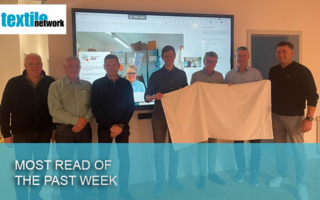29/06/2015 — auf Deutsch lesen
In the service of trade
Not for nothing the trade ranks among the most dynamic and challenging economic sectors. Low prices, sustainable production, good design, high-quality goods, flexible availability, rapid delivery. Global sourcing company Miles are a central connecter in this complex business and keeps its controlling processes fresh!
Nothing is impossible! When market-leading wholesalers follow this credo consistently, they must set a high standard for the own business structures, processes and systems as well. For that matter a trustful and versed consulting partner is helpful – and above all, a consistent and continuous optimization.
Clothes, shoes, accessories, home textiles, decoration articles, suitcases: There is a long list and it is no unlikely that in retail store consumer goods from Miles end up in your shopping cart. As a wholesaler of Hamburg, rich in tradition and with almost 120 years history, Miles became part of the Hong Kong Li & Fung Group in 2008 and thus became the European pillar of the company. Li & Fung is part of the “big players“ of the global sourcing market and was able to record strong growth in the past 15 years. The impact of globalization and digitization made it possible. A vast network of vendors and flexible procurement strategies from the design to the financing provide for an integrated range of services along the entire value-added chain. By splitting the order, the production of an article becomes a transnational project – and all without own factories.
All products are configured according to the customers‘ requirements, which means there is no standard pallet – no shirt, no garden chair resembles the other. Beside the order, the customer doesn’t have to worry about anything more and the goods will be delivered straight into the store. This agrees especially with the trend towards private brands. Today virtually all established retail chains are among the worldwide customer master, including Walmart, Kohl’s, Marks & Spencer or Next. In Germany the biggest customers are Aldi, Takko, Metro, Edeka or Kaufland. Admittedly, the German market is not the easiest due to numerous instructions. And the competitors are to be found particularly in the own purchasing organizations, such as Otto, Tchibo or H&M.
“Social Compliance“ means the clear orientation of the value-added chain on social standards and is the number one subject of global operating retailers - and thus also of the wholesalers. Customers expect low prices, but they also want to know how these prices were arrived at. Li & Fung has its own department, which deals with the scrutinizing of conditions in detail. Additionally, the international trade focusses more and more on environmental topics – especially in America and Asia. There is awareness for the implementation of environmental standards at locations and in offices - the pressure is increasing.
Hence, the central questions for the future are: How can we operate sustainably at our best? How can we grow organically? And how can we keep things as simple as possible? The current three-year plan, which has started in 2014, is demanding the answers. A triennial rhythm instead of the usual rolling planning is a characteristic for the Hong Kong Chinese affected origin of the parent group Li & Fung. This triennial rhythm has proven its worth and it has never been revised.
The European division of Li & Fung operates independently on the commercial field, but in the back office the entire group works together. The objective is to use as many synergies as possible, to realize efficiencies and to reduce costs. The central idea here is: “We don’t want to be a conglomerate of individual enterprises.” A trade group, that focusses on networking and runs numberless locations worldwide, has to rely on a consistent support function – there is no other way.
Within an extensive harmonization initiative, the company reestablished the three main pillars: organization, processes and IT infrastructure. Now on the organizational side a shared service center at the Norderstedt location takes charge of the accounting for all the companies in the continental Europe – of course multilingual. The accounting processes were fully documented, adapted and mapped in a template. In the IT infrastructure sector the SAP FI-CO (Finance & Controlling) has been chosen conjointly and all the other systems were removed. In this way it was possible to build an integrated accounting system in a database.
If you want to keep and increase your market share and actively shape the dynamic market development, you have to put your business structures, processes and system landscapes regularly on trial and try to ameliorate. How does it work? The internal IT of Miles is in a strong position, but with system implementation or complex tasks concerning the interface between controlling and IT, it is clear: Time and again, skilled external experts with special know-how are needed – keyword management cockpit or harmonization initiative. All the better, if you can build on over ten years of a trustful service relation – as with Plaut.
An even more interesting current project was about the fine art of the automated reporting –business intelligence. The complex key task: to provide information about customers in the monthly reporting, to map the business volume and margins at department, customer and product level – and all within the first three working days of a month. The implemented SAP module should apply to the result and market segment calculation CO-PA (Profitability Analysis). The team of consultants made use of a compact self-deployed analysis tool that displayed the current system landscape, specified and prioritized the requirements of the IT and user departments and outlined the new target landscape.
By now, the optimized reporting has been implemented. The accounting system provides information about any financial action on the customer level – and all correct and up-to-date. Afterwards, the data are transferred to the performance-management layer and displayed on the mobile-compatible dashboard of the management cockpit. Thus, Miles now has a consistent customer reporting available as well – “one version of the truth”. Along the way, there were obstacles and daily challenges – particularly in view of limited resources. As is known, the devil is in the details, for instance concerning the quality of the data or the data migration. Besides, it had to be ensured, that the employees were involved adequately and to take them along. The project implementation requires a good cooperation between consultants and company, swift action in case of unplanned modifications and the ability of real prioritization.
What makes IT projects successful and the cooperation with an external partner fertile? Rule number 1: projects should be driven by the finance department – in partnership with the IT. This is best done, if the appointed consultants know how to connect business know-how with IT solutions in an optimum way. Number 2: the project management must actually have an effect on the company and be able to sway people. So keep your eyes open while manning a project. And number 3: the end of a project is the beginning of the next one. The show must go on!
[By Dr. Dirk Pupke and Stefan Dehn]





